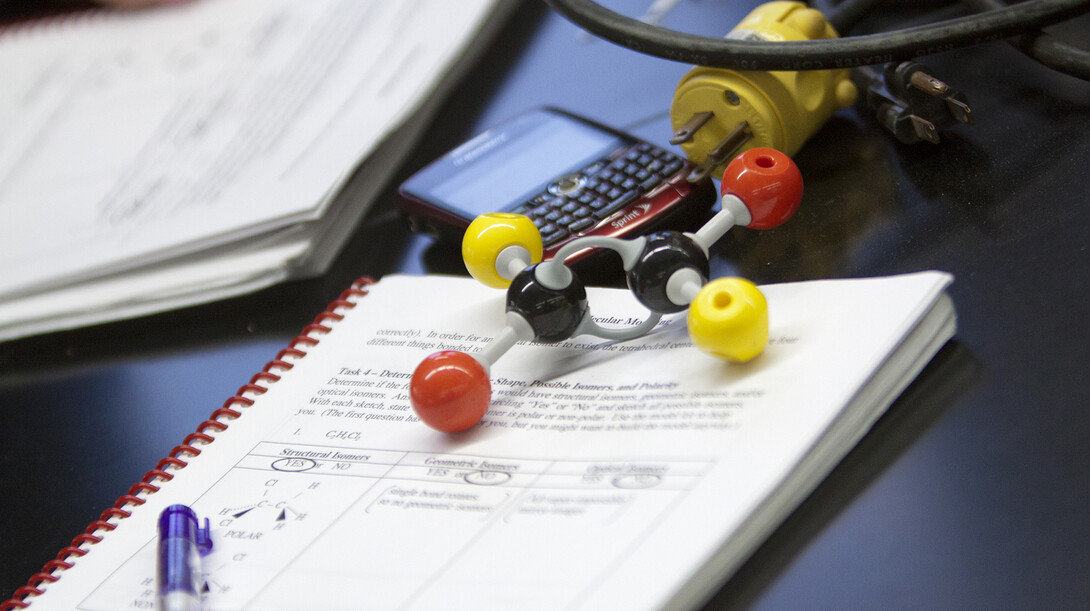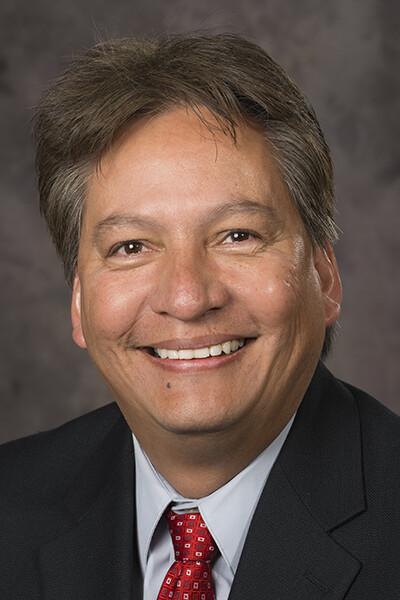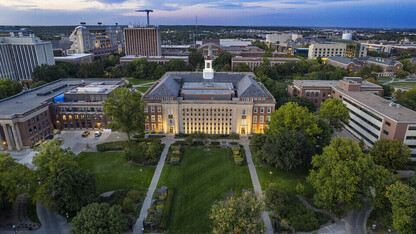
Chris Cornelius, a chemical engineering professor and associate dean for research at UNL’s College of Engineering, is one of four prominent Native academics who will help mentor science, technology, engineering and math students through a newly funded program of the American Indian Science and Engineering Society.
The National Science Foundation recently awarded the society $1.5 million for its five-year project called Lighting the Pathway to Faculty Careers for Natives in STEM.
Cornelius, a chemical engineer from Virginia Polytechnic University, is a member of the Oneida Tribe.
Other co-principal investigators are Mary Jo Ondrechen, a professor of chemistry and chemical biology at Northeastern University in Boston; Robert Megginson, Arthur F. Thurnau professor of mathematics and associate dean at the University of Michigan; and Melinda McClanahan, retired chief information office for the USDA Agricultural Research Service in Washington, D.C. Ondrechen is Mohawk, Megginson is Lakota and McClanahan is Choctaw.
“We will be actively mentoring a cohort of STEM students in order to contribute to the critical science and engineering needs of our nation that is absolutely essential to our economic growth and national security,” Cornelius said. “We are really excited to see this funded.”
In a news release from AISES, NSF Program Officer Sally O’Connor said three aspects of the project are notable:
Its focus on Native students;
Its leadership by Natives prominent in STEM fields; and
Its potential to identify critical interventions for Native students to achieve doctoral degrees in science- and math-related fields.
Though the project is not restricted to Native students, its aim is to create an intergenerational community of students and scholars from the undergraduate level to senior faculty ranks. It is described as a one-of-a-kind attempt at full-service mentoring and exposure to opportunities to help move individuals further along their academic paths.
AISES Chief executive Officer Sarah EchoHawk said the grant is the largest her organization has received. Sponsorship came from multiple NSF directorates, including the Directorates for Biological Sciences; Mathematical and Physical Sciences; Engineering; Education and Human Resources; Geosciences; and Computer and Information Science and Engineering; as well as the Office of International and Integrative Studies.
About 50 students a year would be served, with many participating for several years. Organizers expect that a total of about 100 students to be served over five years.
“The absolute dearth of American Indians, Alaska Natives and Native Hawaiians represented within faculty — and particularly STEM faculty — in institutions of higher learning has long been a national problem,” EchoHawk said. “We look forward to helping make a significant impact in reversing this trend.”








